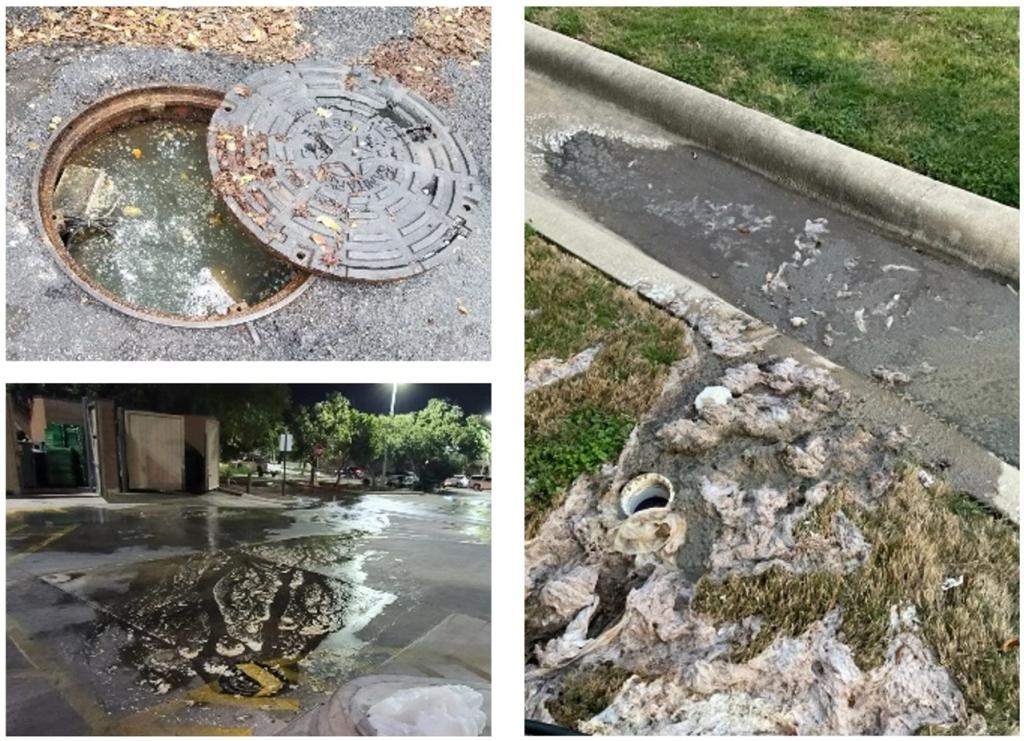What causes an SSO?
SSOs can be caused by anything capable of obstructing the flow of wastewater in a sewer. A build-up of solids and fats, oils and grease (FOG) in the wastewater collection system as well as common household items that are flushed like disposable wipes (even if marked “flushable”) and feminine hygiene products are frequent causes of blockages.
When an obstruction blocks wastewater flow within a pipe, the wastewater may back up and overflow through a manhole, cleanout, or drain. This overflowing wastewater may make its way into the environment, a house or a business.

What is the Pretreatment Program Doing to Prevent SSOs?
The Pretreatment Program provides both commercial and residential customers educational materials on how to prevent SSOs. In addition, it has established several grease trap (GT) related requirements that commercial establishments must adhere to. These requirements are outlined in Chapter 15-10 of the Austin City Code and include:
Also, the Special Billing Program forces businesses that can cause an SSO to reimburse Austin Water for all related expenses.
What can you do to prevent SSOs?
Commercial:
- Sweep floors to remove all trash & debris before washing them down.
- Install and maintain baskets, screens and or strainers over all sink and floor drains.
- Never use food grinders or disposals (these have been prohibited in commercial kitchens in the Austin Water jurisdiction since 2008).
A full list of Best Management Practices and Grease Trap Educational Materials can be found on Grease Trap Maintenance webpage.
Residential:
- Collect small quantities of FOG in an empty can, used jar, or similar container. When cool, place the container in a bag and discard in the trash or take it to Austin Resource Recovery’s Recycle and Reuse Drop-off Center.
- Scrape food scraps into a compost or trash bin to help minimize use of your garbage disposal.
- Before washing, wipe oily pans and dishes thoroughly with a used paper napkin or paper towel and discard in the trash.
- Do not flush anything other than the '3 Ps': Pee, Poop & Toilet Paper.
To learn more, visit our Stop the Grease Blob and Only Flush Toilet Paper webpages.


